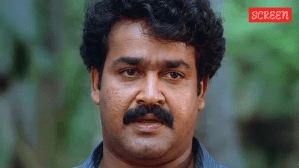‘A storyteller of hope & light’: Vinod Kumar Shukla wins Jnanpith award
He said in a statement after the announcement, “I’ve seen a lot (in life), heard a lot and felt a lot but I could write only a little"
 He is first from Chhattisgarh to win the award
He is first from Chhattisgarh to win the awardVinod Kumar Shukla isn’t big on literary history. “I’ve read very little. You tell me your favourite authors. If they are mine too, I will say yes,” he told The Indian Express in a 2020 interview.
The eminent Hindi writer was on Saturday named the recipient of the 59th Jnanpith Award, India’s highest literary honour. According to a statement from Bharatiya Jnanpith committee, Shukla has won the award for his “simplicity” and “sensitivity”.
The 88-year-old author of novels such as Naukar ki Kameez, about a clerk forced to submit to professional hierarchies, and Khilega Toh Dekhenge, about a teacher who arrives in a village with eccentric residents, is the 12th Hindi writer to win the award and the first from Chhattisgarh.
He said in a statement after the announcement, “I’ve seen a lot (in life), heard a lot and felt a lot but I could write only a little. When I think of how much I needed to write… It feels like a lot remains. Till I remain (alive), I want to complete my remaining writings but I may not be able to finish my work… Due to this, I’m in a great dilemma. I want to pursue my life through my writing, but my life is rapidly approaching its end and I don’t know how to write that fast, so I feel a bit regretful.”
Away from literary centres, Shukla spent much of his life in Chhattisgarh, trying to observe people, their ordinary lives, their unremarkable existence, and their search for hope. His path to literature was paved by a failure in Hindi exam when he was a 12th-grade student. “If I had not failed in Hindi, I would be a doctor or engineer,” he said in the 2020 interview.
Shukla was born in 1937 to a mother who read aloud Bengali literature at home. In Shukla’s early 20s, when Hindi writer Gajanan Madhav Muktibodh came to his village, Rajnandgaon, he showed him some of his poems. Soon he started publishing in reputed magazines like Pustak Kriti and moved to Jabalpur for a master’s degree in agriculture.
“I write when I find an occasion to,” he said in a 2015 interview to The Indian Express. “The first paragraph dictates the next and that’s how I progress. There must be a trigger, but I have never been able to pinpoint a motive — neither when I begin writing, nor when I am done with a work. Perhaps, it’s not so important to find out why one writes after all.”
“Deewar Mein Ek Khirki Rehti Thi is my favourite work of his,” says Shailesh Bharatwasi, publisher at Hind Yugm, which has published many of Shukla’s works. It’s a story of young love and also the first work of Shukla that Bharatwasi came across when he was 16 or 17 years old. “The ease of his work is what’s special about it,” he says.
But it’s not just his stories that have got him repute. His poems “changed the whole diction of modern Hindi literature”, says writer Avinash Mishra. “Before him, Indian writers were known by their political stance or societal views — but his work brought attention to the language. The poem ‘Sab kucch hona bacha rahega’, that came out in 1992, is so beautiful. It plays on the idea that everyone wants hope in some way or the other.”
Writer Ambuj Kumar cites the poem, along with Naukar ki Kameez, as reflective of a humanistic worldview that pervades his oeuvre. “His work is about ordinary people and their ordinary incomes, their small lives and struggles,” says Pallav Kumar Nandwana, associate professor of Hindi at Hindu College, Delhi University.







